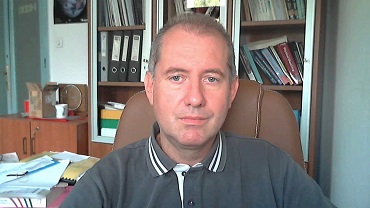OPINIONS
Anna Kynthia Bousdoukou
Key elements of the Sixth Assessment Report of the Intergovernmental Panel on Climate Change (IPCC)

October 30 2021
The recent Sixth Assessment Report (AR6) by the Working Group (WG I) of the Intergovernmental Panel on Climate Change (IPCC) points out that, thanks to increased knowledge, more high-quality observations, and a better understanding of the past climate dating back millions of years, we are in a better position than ever to explain the impacts of anthropogenic climate change and look into the future.
It is undeniable that human activities are causing climate change. Recent climatic changes are large-scale, rapid and intense. They are unprecedented in the last 2,000 years, and the last 100-year period is estimated to have been the hottest in the last 100,000 years. The earth’s average global temperature has increased by about 1.09 °C from the pre-industrial era to the present, with human activities accounting for 1.07 °C of this increase.
At the same time, we have seen a continuing decline in recent decades in the mass of ice, glaciers, and snow cover. The ocean continues to warm and become more acidic as it absorbs more carbon dioxide, and global sea levels have risen by about 20 centimeters since 1900. Climate change is already affecting every inhabited area around the world, with human influence making extreme climate events, including heat waves, heavy rainfall, and droughts, more frequent and intense. An additional half a degree of global warming would cause further detectable changes in the frequency of extreme climate events worldwide.
Regarding the Mediterranean region, the IPPC’s AR6 assessed that there has been an increase in observed drought conditions for the recent past (with medium confidence). For the future, it projects an increase in drought-and-fire-prone weather conditions at global warming levels of +2 °C and above, compared to the pre-industrial era (with high confidence). It is estimated that, in the long term, the 1.5 °C increase in our average global temperature compared to the pre-industrial era will be exceeded in the next 20 years, with more than a 50% chance of this happening in the early 2030s.
Unless there are immediate, rapid, and large-scale reductions in emissions of carbon dioxide, methane, and other greenhouse gases, limiting global warming to 1.5 °C compared to the pre-industrial era will not be achievable. It is clear that the current global commitment for action up to 2030 is not in line with this objective.
It is important to point out that the IPCC’s AR6 demonstrates that it is possible to tackle climate change and air pollution simultaneously, as rapid reductions in greenhouse gas emissions along with strict controls on air pollution could benefit the climate and improve air quality.
Note: This text expresses my personal opinion on the main conclusions of the report, and I do not represent the IPCC (although I am one of the lead authors of the report).
Prodromos Zanis participated in the discussion entitled "Climate Change - Part 2"


